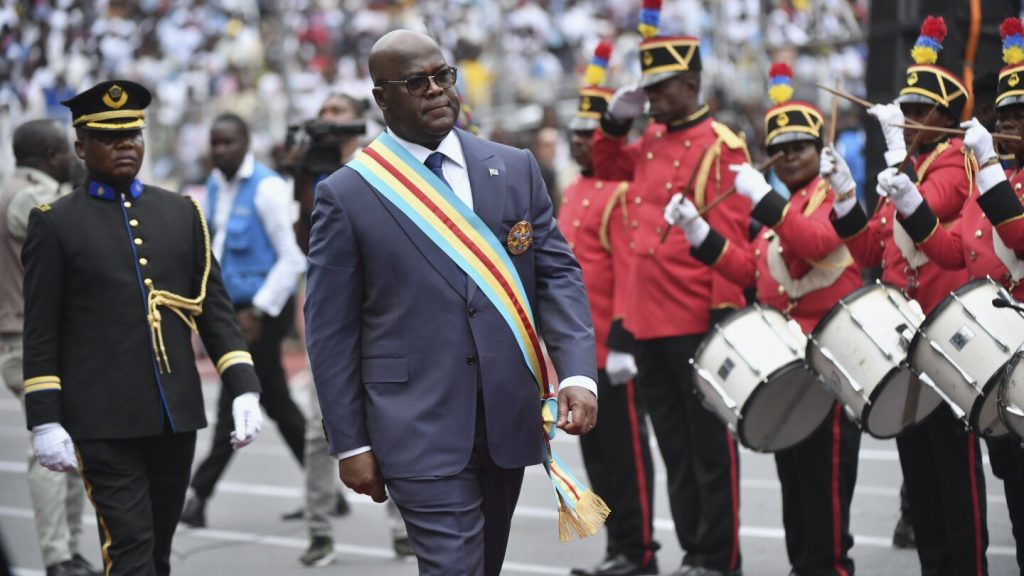In a historic move, Congolese President Felix Tshisekedi has appointed the country’s first female prime minister, Judith Suminwa Tuluka. This appointment fulfills a campaign promise made by Tshisekedi and marks an important step towards the formation of a new government following his reelection late last year. Tuluka, a former planning minister, will be stepping into the role amidst worsening violence in the country’s mineral-rich east, which has displaced over 7 million people and is considered one of the world’s worst humanitarian crises.
Tuluka has promised to work towards peace and development in her new role, acknowledging the conflicts faced by different regions of the country, particularly in the east where over 120 armed groups seek control of the region’s resources. The formation of a new government may take months as it requires negotiations with various political parties, highlighting the complexities of governance in Congo. The ongoing conflict in the eastern region has prompted the government to ask both regional and U.N. peacekeepers to leave the country, accusing them of failing to resolve the crisis, further exacerbating the violence.
The prominent rebel group M23 has made significant territorial gains in the east, contributing to the spike in violence and displacement of people. Despite being reelected for a second term in December, President Tshisekedi has blamed neighboring Rwanda for supporting the rebels, a claim denied by Rwanda. The United States has urged both countries to avoid escalating tensions and called for the withdrawal of troops and weapons from eastern Congo. The situation remains complex, with conflicting narratives from different parties involved in the conflict.
The appointment of the first female prime minister in Congo is a significant milestone for gender equality in the country’s political landscape. Tuluka’s leadership in this role could bring new perspectives and approaches to addressing the challenges faced by the nation, particularly in conflict-affected regions like the east. As she steps into her new position, there is hope that her leadership will prioritize peacebuilding efforts and sustainable development, especially in areas devastated by violence and instability.
The engagement of various armed groups in the eastern region underscores the need for a comprehensive and inclusive peace process that addresses the root causes of the conflict. The international community, including the United Nations, plays a crucial role in supporting peacebuilding efforts and addressing humanitarian needs in Congo. The ongoing violence and displacement of millions of people require urgent attention and coordinated efforts from all stakeholders to prevent further escalation and foster sustainable peace in the region.
The complex dynamics of the conflict in Congo, including allegations of external support for rebel groups, highlight the challenges faced in resolving the crisis. The involvement of neighboring countries like Rwanda adds another layer of complexity to the situation, requiring diplomatic efforts to de-escalate tensions and promote dialogue for a peaceful resolution. As the new government takes shape and the first female prime minister assumes her responsibilities, there is a need for concerted efforts to address the root causes of the conflict and promote reconciliation and stability in Congo for the benefit of all its citizens.


